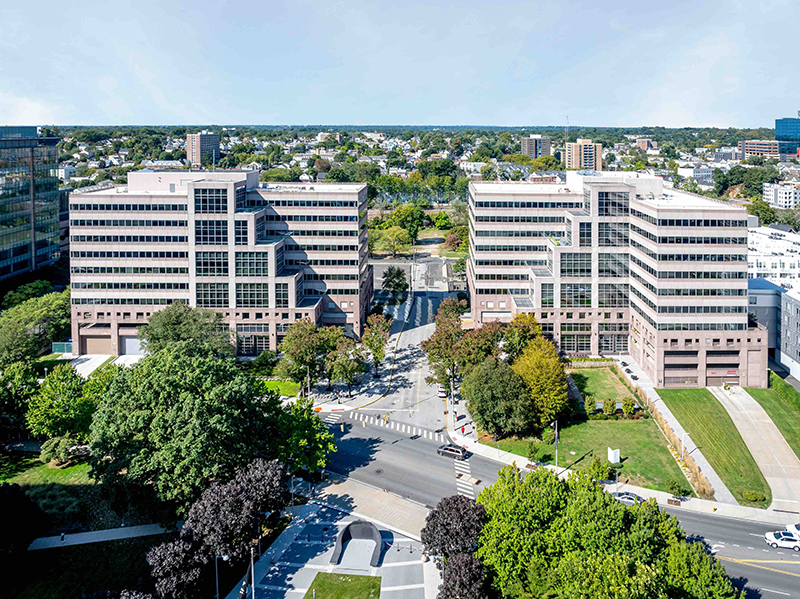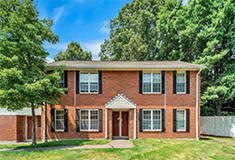News:
Connecticut
Posted: May 19, 2010
New jobs will drive demand for apartments in central and eastern Connecticut
Connecticut businesses continue to reach positive territory by the end of this year, despite the slow recovery. Healthy gains have been recorded in central Connecticut in the leisure, hospitality, education and health services sector while trade, transportation, and utility employers are expected to hire more in the second quarter of 2010. Resumed hiring will strengthen residential demand and vacancy will decline 60 basis point to a healthy 5.6%. Together these sectors make up more than one-third of the metro's total jobs and development in these areas will result in expansion of other sectors. The first quarter vacancy rate was recorded at 5.7% with projections of decreasing even further toward the end of 2010. The metrowide first quarter vacancy rate of 5.7% is 10 basis points below the recorded rate six months ago. Furthermore, asking and effective rents are expected to increase by more than 1% this year, bringing asking rents to $973 per month and $931 per month.
Tight capital market continues to limit multifamily investments in central Connecticut; pricing levels have also impacted activity. Over the past 24 months, owners have been reluctant to reduce their asking prices with regards to the relatively modest reductions of rent in recent quarters. Due to a softening investor demand and revenue decreases, prices are expected to dip in coming quarters.
At the end of the first quarter, 70 market-rate units have been added to the local apartment inventory, compared to 390 units during the previous year, indicating builders have slowed their pace in response to the economy. Although the tight debt markets and economy will discourage some developers, construction efforts will extend beyond 2010 with five major projects underway in the metro, comprised of nearly 500 market-rate units. There are 225 rental units scheduled for completion during the second and third quarter and roughly 1,100 units planned marketwide. The 220-unit Mansions at Canyon Ridge in East Windsor is the largest project under construction and is expected to be completed in the first half of 2011. Asking rents at the new complex are priced above the average Class A units and range from $1,180 per month to $1,600.
Moderate occupancy and effective rent decreases have underpinned an average revenue decline of approximately 0.6% in the last 12 months. Overall, vacancy will decline 60 basis points to a healthy 5.6%, while asking rents advancing by 1% and effective rents gaining over 1%.
In the prior 12-month stretch, velocity was flat in central Connecticut. Declining revenues have led to a 44% decline in deal flow since the first quarter of 2009. During the past 24 months, the average apartment price remained steady in the $59,000 per unit range, while cap rates continue to rise due to the investors rising risk premiums. In the past year alone, cap rates have increased an average of 40 basis points to the low- 8% range, whereas initial yields for top quality apartment product can start as low as 6.75%.
In all, the beginning of an economic recovery is apparent in Connecticut and quarterly job growth has been posted in the first three months of 2010 - a trend that had not occurred since the fourth quarter of 2007. Recovery will gain momentum in the second half of the year with the addition of new jobs spurring housing demand. Vacancy remained steady over the past three months partially due to the lack of apartment developments since mid-2009, but this year supply growth will cause vacancy to increase.
Steven Witten is the first vice president and senior director of the National Multi Housing Group in the New Haven office of Marcus & Millichap Real Estate Investment Services.
Tags:
Connecticut
MORE FROM Connecticut
CBRE brokers sale of Stamford Towers - 326,468 s/f Class A office
Stamford, CT The CBRE team of Jeff Dunne, Steve Bardsley, and Travis Langer, in collaboration with David Block, completed the sale of Stamford Towers, located at 680 & 750 Washington Blvd. CBRE represented the seller, CBRE Investment Management, and procured the buyer, a joint venture of Lamar Companies











.png)
